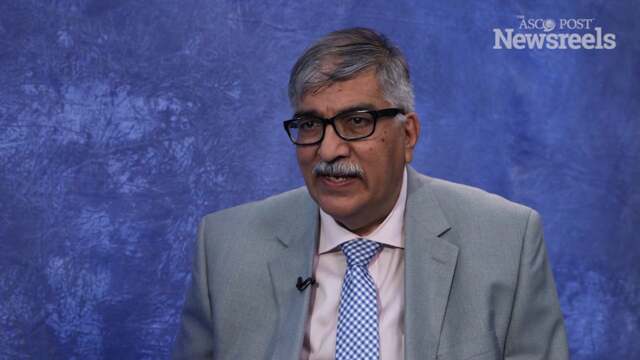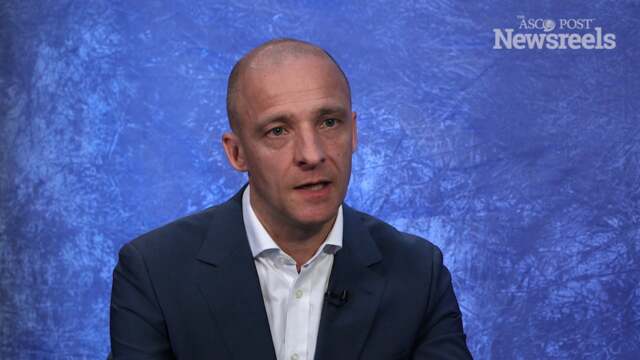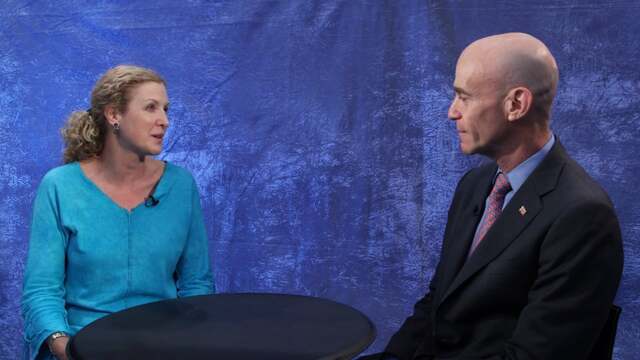Axel Grothey, MD, on Colon Cancer: Results of the IDEA Collaboration
2017 ASCO Annual Meeting
Axel Grothey, MD, of the Mayo Clinic Rochester, discusses study findings on shortening the duration of adjuvant oxaliplatin-based therapy, linked to neurotoxicity, for patients with stage III colon cancer. (Abstract LBA1)
Rakesh Chopra, MD, of India’s Artemis Hospitals, discusses ASCO’s Role in global cancer care and the issues he finds most pressing.
Eric Jonasch, MD, of The University of Texas MD Anderson Cancer Center, discusses the largest prospective VHL disease-specific therapeutic trial performed to date, and the data that show pazopanib resulted in significant and sustained disease control for the majority of patients enrolled on the study. (Abstract 4516)
Lisa A. Carey, MD, of the University of North Carolina, and Mark E. Robson, MD, of Memorial Sloan Kettering Cancer Center, discuss phase III study findings on olaparib monotherapy vs chemotherapy for patients with HER2-negative metastatic breast cancer and a germline BRCA mutation. (Abstract LBA4)
Greta Stifel recounts her story about a misdiagnosed tumor and urges physicians to raise awareness of neuroendocrine disease.
Ann-Lii Cheng, MD, PhD, of the National Taiwan University Hospital, discusses phase III study findings on lenvatinib vs sorafenib in first-line treatment of patients with unresectable hepatocellular carcinoma. (Abstract 4001)





